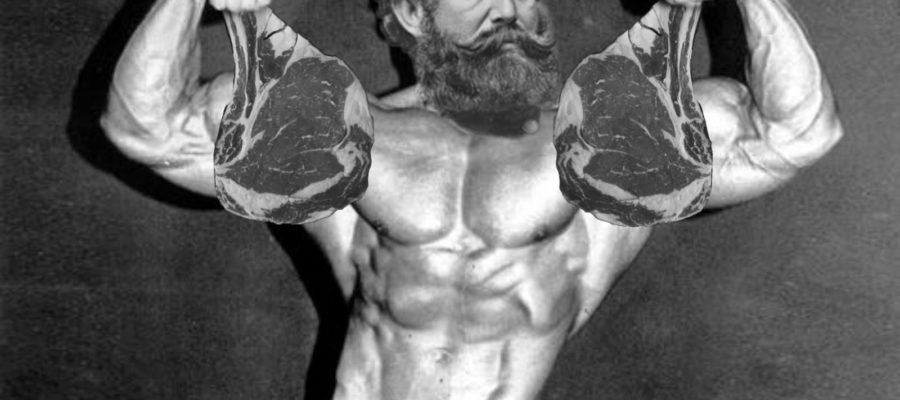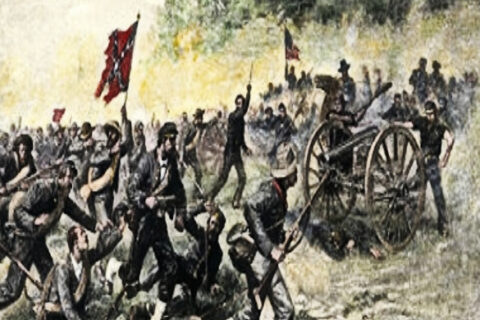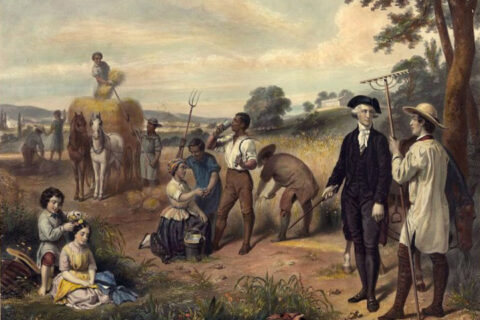Besieged in Richmond by the manlet Yankee horde, under the control of the Gains Goblin General Ulysses S. Grant, food was growing scarce for Johnny Reb in the fall of 1864. While the typical Southern gentleman was no stranger to godly fasting, unlike his flabby northern counterpart, many Confederates were starting to see their biceps decrease in size due to the prolonged caloric deficit. Something had to be done. When Sergeant George D. Shadburn came running in with news of potential protein, the future savior of South Carolina, Major General Wade Hampton, knew that this was their shot to bulk prior to the cold winter to come.
According to the scout, just five (5) miles downriver in Prince George County and from the dastardly drunk eye of Grant, was a treasure trove of bodybuilding nutrients conveniently packaged in the muscles of around 3,000 lightly guarded cattle. Wade Hampton set about collecting a veritable A-team to help him collect the delicious bounty. 3,000 men accompanied General Hampton, including a handful of engineers needed to ensure bridges were strong enough to hold under the weight of the Confederates’ massive gains. Also under his command were several professional cattle rustlers from the den of miscreants called Texas.
Marching south through the Yankee lines, General Hampton had his engineers reconstruct a bridge which had previously been destroyed, presumably disassembled to make a field gymnasium by passing Confederate gymbros. After lifting the final pieces into place, the force marched over the river and through the woods to get beef to feed their boys. Waking up prior to sunup, like proper men of good health and sound mind, the attack on the cattle trove began at 5 AM, while the soft, foreign, Yankee soldiers were still sleeping with their anime pillows. The total gains of the Confederates came out to 2,468 cattle, 11 wagons of supplies (probably protein powder), and 304 prisoners. Even Abraham Lincoln (spits) called the raid “the slickest piece of cattle stealing” he’d ever heard of. The Confederates were not without loss, with 10 killed, 47 wounded and four (4) missing. Those men continue to lift in heaven to this day.
The arrival of so much beef was a godsend to the virtuous men defending the Capital of the Confederacy. So, commenced many days of feasting to the point where the Confederates would taunt their frail adversaries, flaunting their red meat wealth before it was ultimately consumed. Meat was plentiful to the point where the Rebs would trade their precious meat to their Yankee counterparts, largely out of pity, but also for goods that they were in need of.
The voracious appetite of the Southern Man did quickly run through the small gift of cattle provided by General Hampton, and hard times did return. Vastly outnumbered, as well as, out supplied by the Yankee menace, the Dixians were unable to hold out much longer in the face of such odds. However, even today, the famous Beefsteak Raid echoes in our memories. In fact, an annual beefsteak dinner is still held today by the Prince George County Historical Society to honor these heroes.

We are witnessing, not the natural end of a great human civilization, but the birth of an inhuman civilization that could never have come into being without a vast, an immense, a universal sterilization of life’s highest values






Nice post! It just goes to show that even an old fart like me can learn new stuff he never knew about before.
Relevant: I mentioned John Ransom’s Andersonville diary in a previous post by Tyler. If I recall rightly, Ransom was 20 years-old when he and his cohorts were defeated in battle and captured by the Confederates. If memory serves, he turned 21 at Andersonville.
Anyway, he (Ransom) talks a lot in the diary about how soft he was by comparison to the average of his Confederate enemy. Very soon after his capture, he befriended one of his Confederate captors/guards. The Confederate young man had a blanket Ransom coveted, knowing it would serve him well in captivity; and Ransom had lots of worthless money to give him in exchange. Ransom brags throughout the narrative of how he swindled this ignorant fellow out of the blanket in exchange for the worthless cash. It never occurs to him that perhaps the Confederate made the trade out of the goodness of his heart, knowing full well his money was essentially worthless, and that Ransom was a weakling.
Other Yankee writers, though, knew very well that their captors had a soft spot in their hearts for these weak (in spirit and in body) Yankee POWs. They give them credit where credit is due in lifting their defeated spirits with hopes of being exchanged ‘any day now,’ when in fact the Confederates guarding them knew their own government (the Yankee government) had long since dashed any hopes of their being exchanged.
Excellent little article! In this case using the gym analogy was pulled off brilliantly to give me enjoyable insight into a little piece of history to which I had been ignorant.